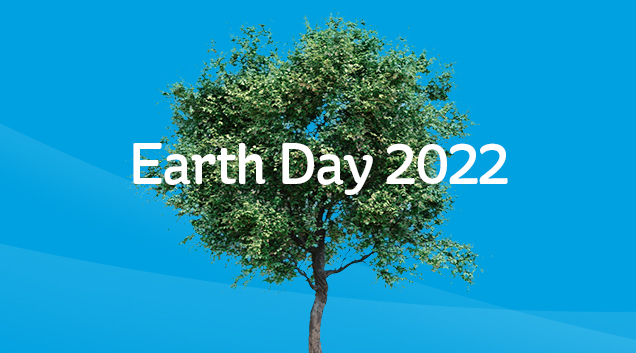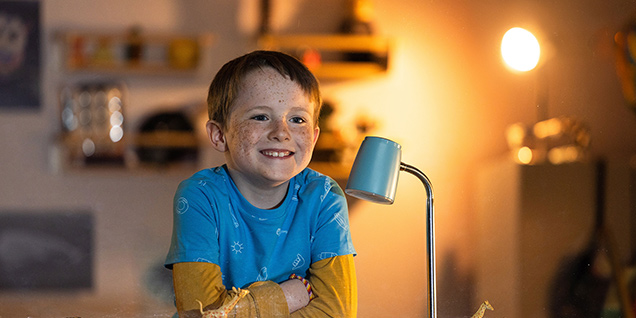10 mind-blowing sustainable projects tackling climate change around the world

Climate change is the greatest challenge facing this and future generations. According to the UN, it is the 'defining crisis of our time'. It is changing the environment, economies and people’s lives in many different ways across the world.
April 22, 2022 marks Earth Day, a day to show support for environmental protection.
What is Earth Day?
Earth Day started in 1970, bringing together separate environmentalist groups across America against pollution, deforestation and animal extinction. Today, more than 190 countries take part in Earth Day with the fight against climate change being a primary focus in 2022.
We've rounded up 10 sustainable projects around the world that are fighting climate change.
10 sustainable projects tackling climate change around the world
In this article, we look at some of the more incredible sustainable projects and innovations that have sprung up around the world in recent years.
1. Energy-positive hotel harnessing sustainable energy
Set to open in 2023, Norway’s Svart Hotel will be the world’s first energy-positive hotel.
It will consume about 85% less energy than other modern hotels. And not only will it harness enough solar power for its own operations, it will also feed power back to the grid.
Located next to the Svartisen glacier, the property – with panoramic views of stunning Arctic terrain – will feature 99 rooms, an indoor-outdoor spa, four restaurants and an education centre.
The hotel and its adjacent services, including a greenhouse farm and boat shuttles, will be completely self-sufficient in electricity, water and waste management.
2. Cool technology at Japan’s eco-friendly National Stadium
In 2013, when Toyko won the bid to host the 2020 Olympic Games, officials immediately went to work on cooling-down a city prone to sweltering summer temperatures.As well as moving the Olympic marathon and racewalks to the cooler northern island of Hokkaido, Japan invested in a suite of cooling measures that were impressive on the sustainability scale.
They coated more than 100km of running surfaces and roads with solar-blocking paint – which reduced the temperatures by 8°C.
They built the eco-friendly 68,000-seat Japan National Stadium which was designed to let in as much wind as possible to provide natural cooling. They also used massive amounts of Japanese wood in the construction – in part to reduce heat absorption by metal and to avoid the environmental impact of importing timber.
There was myriad other green cooling technologies deployed to cool the Games, including mobile and fixed misting towers (cooling air by up to 20°C), energy-efficient air conditioners and sophisticated temperature-monitoring wearables.
3. Earth Day inspiration from home: Ecovillage in County Tipperary
Cloughjordan ecovillage is a 67-acre site located about 15km from Nenagh in Co Tipperary.This Sustainable Projects Ireland project is a mixed-use development with a strong emphasis on economic, social and environmental sustainability.
The ecovillage is home to over 120 residents who live in high-performance green homes. The project features a carbon-neutral district heating system, community farm, green enterprise centre, amphitheatre, eco-hostel, bookshop and bakery and is an education centre for students and academics interested in low-carbon living. There is also a large biodiversity garden with 20,000 trees.
The people here have day jobs – many working remotely. There are ‘live-work’ units around the village so people can work close to home. Each adult also dedicates 100 volunteer hours a year to the community project – as members of a variety of working groups. Work might include things like pruning apple trees or doing tour guide for an education group.
Cloughjordan Ecovillage is continuing to develop, educate and impress. In 2020, it made the top 12 list for the Transformative Cities People’s Choice Award – with its inspiring tale of local transformation. We’re sure they’ll be having a great Earth Day celebration this year!
4. Plyscraper skyscraper standing tall against climate change
The Sara Cultural Centre in Skellefteå, Sweden, is one of the tallest wooden buildings in the world. Complete with a 205-room hotel and conference centre, the structure rises to a whopping 75 metres or 20 storeys tall.The wooden cultural tower is well at home in the climate-conscious town of Skelleftea, which hosts an array of wooden apartment blocks, schools, road bridges and car parks. Skellefteå runs on 100% renewable energy from hydropower and wind, and recycles 120,000 tonnes of electronic waste a year.
According to its architect, White Arkitekter: 'The high-rise hotel is built up from prefabricated 3D-modules in cross laminated timber (CLT), stacked between two elevator cores entirely made of CLT.
'The low-rise cultural centre is built with columns and beams of glued laminated timber (GLT) and cores and shear walls in CLT.
'Integrated structural design has eliminated the need for concrete entirely from the load bearing structure, speeding up construction and drastically reducing the building’s carbon footprint.'
5. Flower Turbines is a sustainable project with style
With the Netherlands already well known for its tulips and windmills, Rotterdam company Flower Turbines has taken inspiration and rolled the two into one. The artistic-looking tulip turbine is non-intrusive, highly functional and somehow endearing.Standing at just one or three metres tall (two options), and fairly silent, a few of these on a rooftop can power a household’s total energy needs. The company says their turbines pose no threat to wildlife, and that they generate more energy per square metre than solar panels, when conditions are good.
So watch that space. Just like in the Netherlands and Germany, a tulip turbine might just turn up on a rooftop near you…sometime soon.
6. Innovative Swiss air capture plant
Who would have thought? Air capture. Launched in September 2021 by Swiss start-up Climeworks, Orca Reykjavik is the world’s first and largest climate-positive direct air capture and storage plant. Its job is to absorb 4,000 tonnes of carbon dioxide from the air every year. The carbon is then mixed with water and pumped underground.
Both processes are powered by a nearby geothermal power plant. While you might think that in the grand scheme of things, this is one small drop in the world’s carbon ocean – it is one massive step for technology in the field of global warming.
7. Eco shopping in Italy
Green Pea shopping centre in Turin, Italy, is the world’s first retail centre built on an all-green concept.With eco-friendly architecture featuring solar panels and trees, Green Pea is spread over five floors and incorporates 66 shops, a museum, restaurants, swimming pool and spa. With a shared goal of reducing environmental pollution and providing shoppers with sustainable products and services, each outlet has built its infrastructure using green materials.
Championed by entrepreneur Oscar Farinetti, plans are afoot for further green shopping centres in Paris, London, Dubai, Tokyo, Moscow, Los Angeles, Toronto and Shanghai.
8. Solar balloons bringing mobile power to disaster zones
French start-up EONEF has developed the Zephyr, which is a self-powered photovoltaic balloon that can bring mobile power to humanitarian disaster zones. It can produce enough energy to supply about 50 people or support urgent medical needs.
The solar energy generated is sent to the ground where it can used immediately or stored in a battery for later use.
The balloon, filled with helium, can be deployed in under an hour and can fly for four to six weeks at a time. It is stabilised at sites through sails and can withstand even violent winds. Once launched, the balloon does not need to be maintained at all throughout its flight duration.
It can also carry impressive technology that helps locate survivors in disaster situations by tracing the whereabouts of their mobile phones.
9. Helping plants grow where global warming is at its worst
Developed by Dutch flower exporter, Pieter Hoff, the Groasis Waterboxx is a device that supports plants and trees to survive in extreme climates – such as heat, drought and erosion. With the Waterboxx, the plants has more than a 90% chance of survival.
Trees and vegetables are planted in the Waterboxx’s ‘intelligent’ buckets – which are made from recycled paper.
The Waterboxx captures rainwater and condensation to water the plants, thereby using 99% less water than is normally used for growing. The technology keeps the water cooler than air temperature. It acts like an incubator for the plants – keeping soil at the right temperature and protecting the plant from the wind. When the plant is strong enough, you can then remove the supporting bucket.
According to its mission statement, Groasis wants to make two billion hectares of depleted farmland suitable for forestry and agriculture, and by doing so help remedy food and water shortages.
10. Convert fog into drinking water
The CloudFisher, developed by German WaterFoundation, is the world’s first production fog collector. The fog nets catch and harvest water droplets in the air. The water obtained in this cost-effective way can provide people with cheap and clean drinking water. It can also be used by farmers for reforestation projects or in industry.
The fog collector is simple to install and maintain. The nets use no energy whatsoever in its operations and each net can collect more than 600 litres of drinking water a day. They can be used in all arid mountainous and coastal regions which have long periods of foggy weather. The collector is extremely robust and can withstand wind speeds of up to 120 kph.

Electric Ireland has plenty of energy-reducing tips you can try at home to reduce your carbon footprint.
Read more: This bungalow went from BER F rating to A2
Read more: Get the most from your smart meter
Read more: How to know your energy bill is accurate
Follow Electric Ireland on social media: Twitter: @electricireland Facebook: @ Electric Ireland Instagram: @electricireland


.jpg?sfvrsn=a86d321f_1)
.jpg?sfvrsn=53f3f004_1)